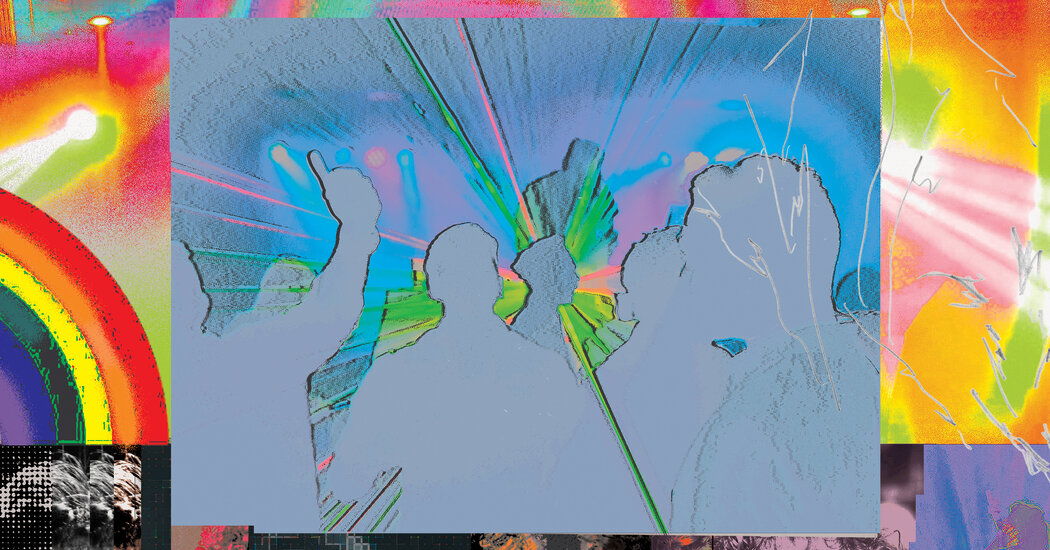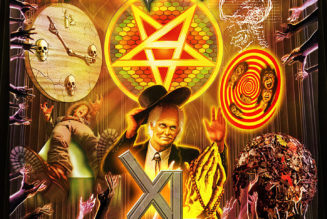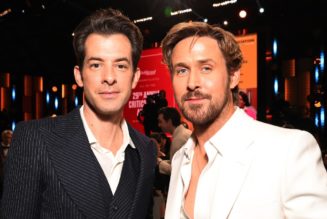
Social justice, romance and gay pride are alive in a sound that would seduce the world.
We gathered each Sunday. The place of worship: Tracks, a mammoth warehouse-turned-nightclub in Southeast Washington, D.C. We were a congregation of mostly Black gay men, there to celebrate one another, at a time — the early 1990s — when we were losing so many to AIDS. We danced — many vogued — to the music that endured after the anti-Black, anti-gay “Disco Sucks” movement of the late 1970s. This fledgling genre transformed dance music, through synthesizers, drum machines and the scrappiness of youth, into a sound that would seduce the world. Some would “call it house,” as the duo Mass Order sang on “Lift Every Voice (Take Me Away),” from 1991.
So many songs reflected my values and interests: social injustice (CeCe Rogers, “Someday”), romance (MAW & Company featuring Xaviera Gold, “Gonna Get Back to You”), recovering from heartbreak (Ultra Naté, “It’s Over Now”) and gay pride (Carl Bean, “I Was Born This Way”). Other cuts I cherished weren’t songs written for the clubs, but remixes: R&B and pop songs reconfigured for the dance floor.
Life is a remix. Or at least mine has been. Like many, I grew up exploring identity through pop culture. But being Black and gay, I felt most mainstream entertainment didn’t affirm my place in the world. I nevertheless sifted through mass media, embracing what served me, discarding what didn’t. This process of fashioning custom-fitted couture from cultural ready-to-wear is epitomized by the remix. “Remix” has a range of meanings, but in general it refers to a practice, with roots in Jamaican reggae, in which D.J.s and producers take a pre-existing song and tweak it for a specific audience.
I also loved many remixes because they offered a choose-your-own-adventure approach to music.
In the 1990s — when the advances from increased gay visibility bucked up against the backlash triggered by AIDS — remixes attested that the music cultivated in Black gay spaces had larger cultural value. It meant something to me when, say, Diana Ross reached out to a younger generation with “Workin’ Overtime (House Mix),” Jody Watley transformed into a sinister cyborg on “I’m the One You Need (Dead Zone Mix)” and Mariah Carey went on a historical Black music journey, evoking jazz, gospel and soul on “Anytime You Need a Friend (Dave’s Empty Pass).”
I also loved many remixes because they offered a choose-your-own-adventure approach to music. Remixes can free a song from the dictates of radio trends, marketability and the pop conventions of boy-meets-girl. For example, Watley’s song “When a Man Loves a Woman” was released with the remixes “When a Woman Loves a Woman” and “When a Man Loves a Man.”
One of my favorite remixes is Quincy Jones’s “Listen Up (Chakapella Dub Mix),” by Arthur Baker. Baker uses Chaka Khan’s vocals to create a narcotic soundscape. The mix opens with a low bass rumble, the way a storm signals its arrival. An uncharacteristically raspy Khan starts wailing. Her vocals bring to mind sounds Frederick Douglass describes in his autobiography, music made by enslaved people: “They would sometimes sing the most pathetic sentiment in the most rapturous tone and the most rapturous sentiment in the most pathetic tone.” She roars, “I’m in love,” over and over and over again. The wildness of the repeated phrase suggests madness, but a relatable kind. It makes me think about what, on the surface, seems so irrational: a Black queer person risking alienation from the larger Black community to shape a distinct identity around the inexplicable wants of the heart.
Other remixes form narratives. On the “Every Woman’s Beat” remix of Whitney Houston’s 1993 cover of Khan’s signature song, “I’m Every Woman,” the producers David Cole and Robert Clivillés of C+C Music Factory use Houston’s vocals to create an impressionistic tale that charts the journey from external desire to inner fulfillment, similar to the theme of “The Wizard of Oz.” At the start of the track, Houston repeats, “anything you want” as if she’s compelled by craving. Then she yells, “I got it,” before proclaiming, “I’m the one.” It feels as if a glittery Glinda had just whispered to her: “You’ve always had the power, my dear. You just had to learn it for yourself.”
There is another function of the remixes I cherish most: They instigate precious memories. As James Baldwin wrote: “Music is our witness and our ally. The beat is the confession, which recognizes, changes, and conquers time.” Some remixes remind me of the 1980s and ’90s, when music forged in Black queer spaces began reaching the mainstream. Remixes were one way of preserving Black queer aesthetics amid economic incentives to make club music more commercial.
The “FBI Dub” of Janet Jackson’s 1997 hit “Together Again,” by Zanzibar DJ Tony Humphries, takes me back to those days. It’s a reminder of the ferocity of many lost to AIDS. Humphries jackhammers a classic M.F.S.B. groove, breaking it into rhythmic slabs that are the perfect accompaniment to an exquisitely executed pose. It’s house music as hoodoo, conjuring angular apparitions trapped in a fierce dance battle. I listen to these and other remixes from the era to help me cope with a phantom past, the feeling I survived a plague that often seems forgotten. Remixes bring me hope because, by definition, they represent the possibility of change. I’m thinking about a line from Indeep’s 1982 club burner “Last Night a DJ Saved My Life”: “There’s not a problem that I can’t fix/’Cause I can do it in the mix.”
Craig Seymour is a music critic and the author of “Luther: The Life and Longing of Luther Vandross.”









